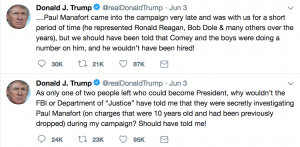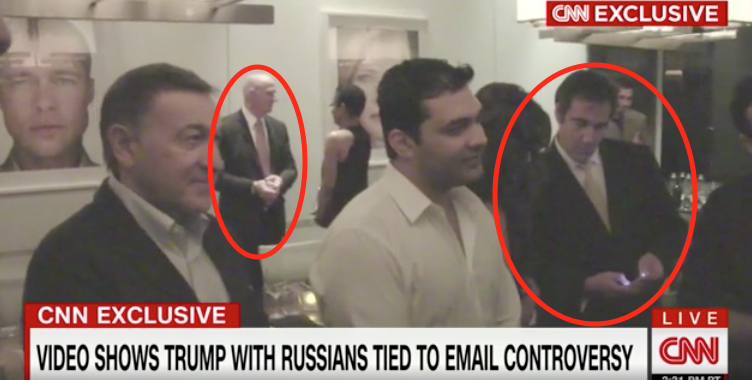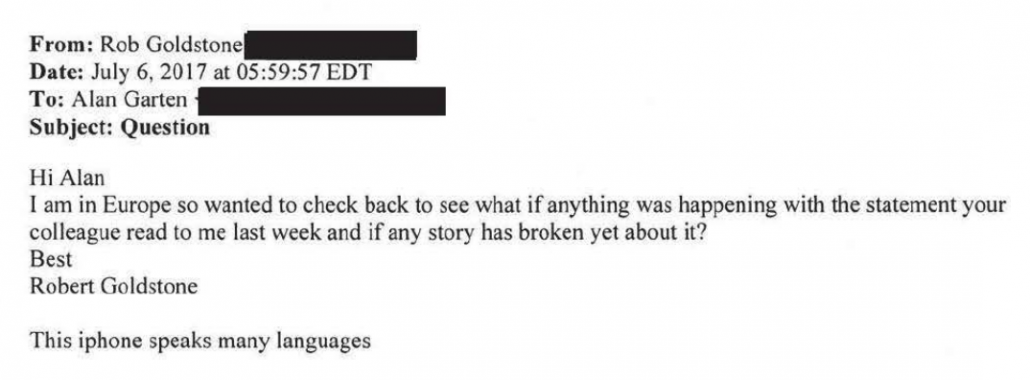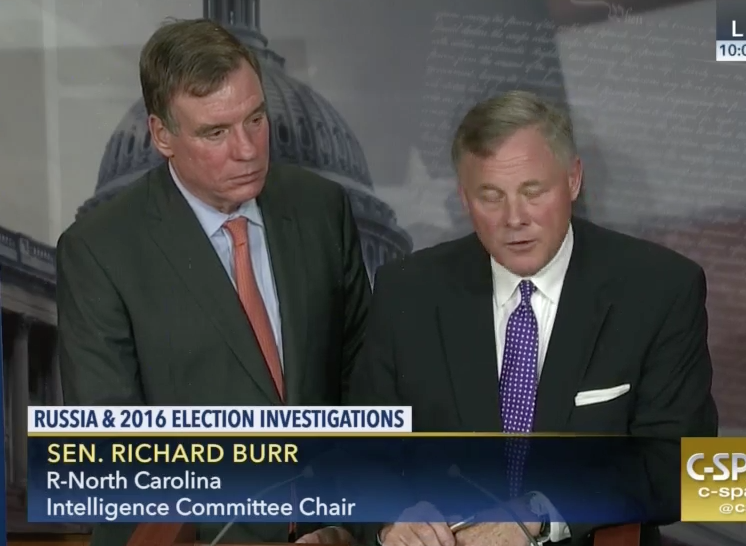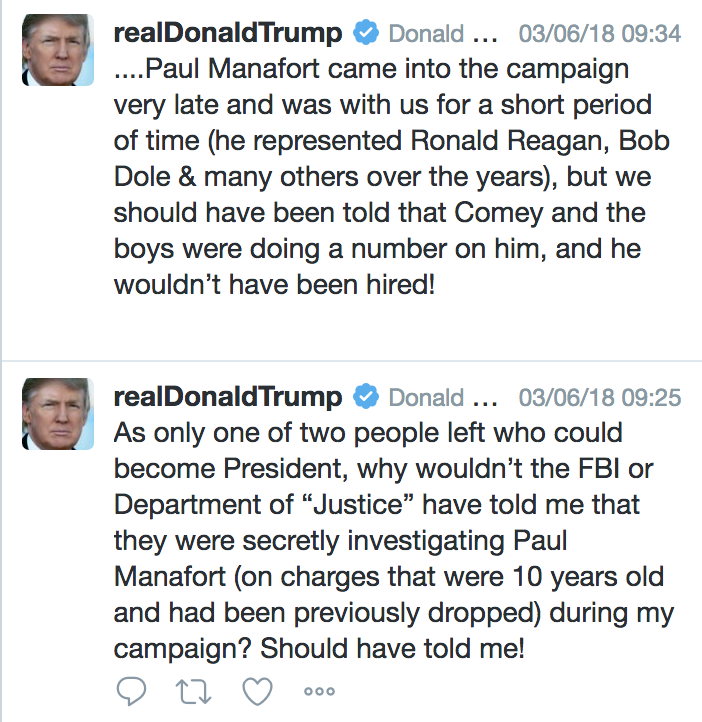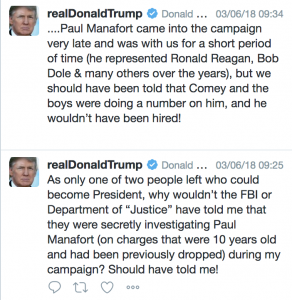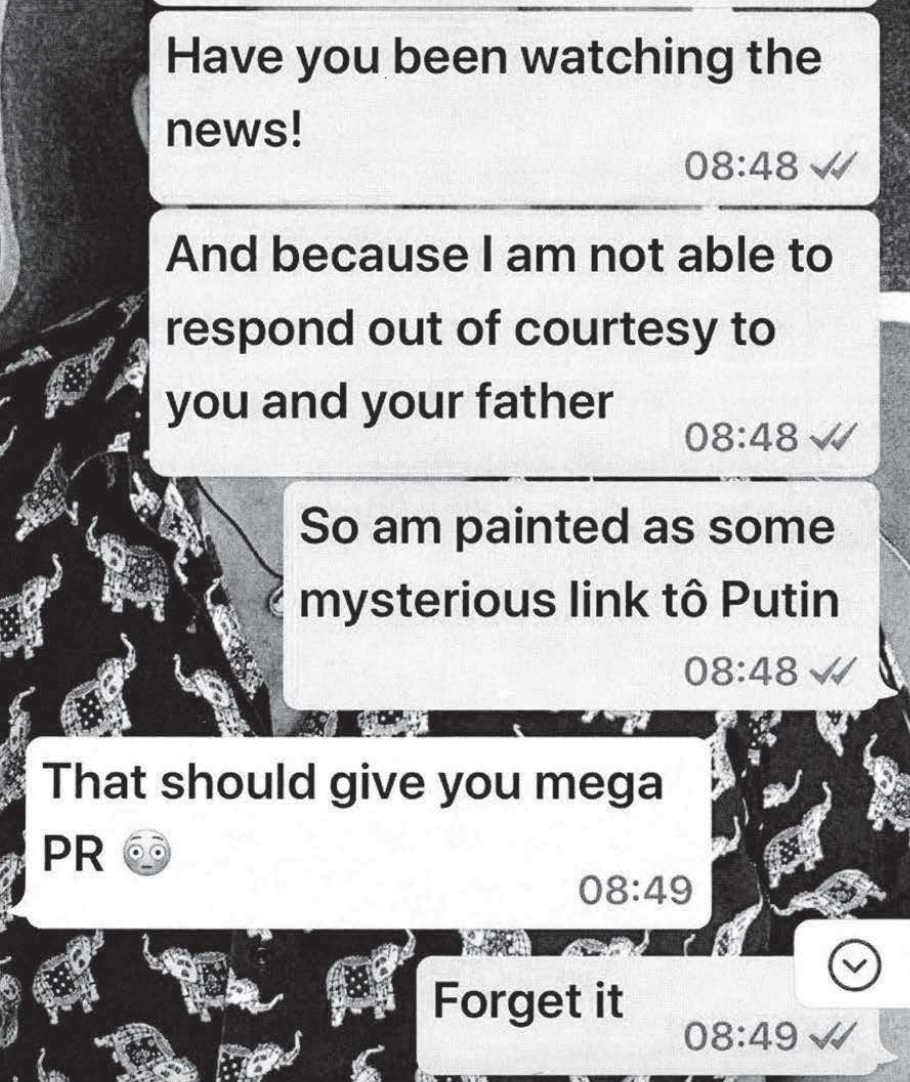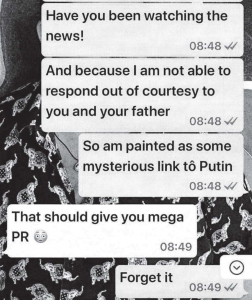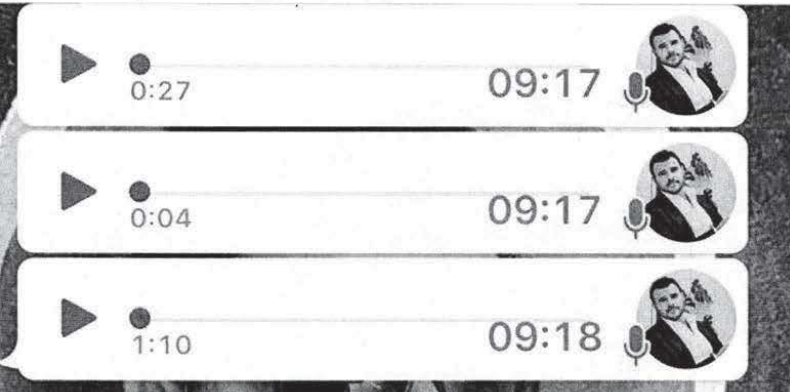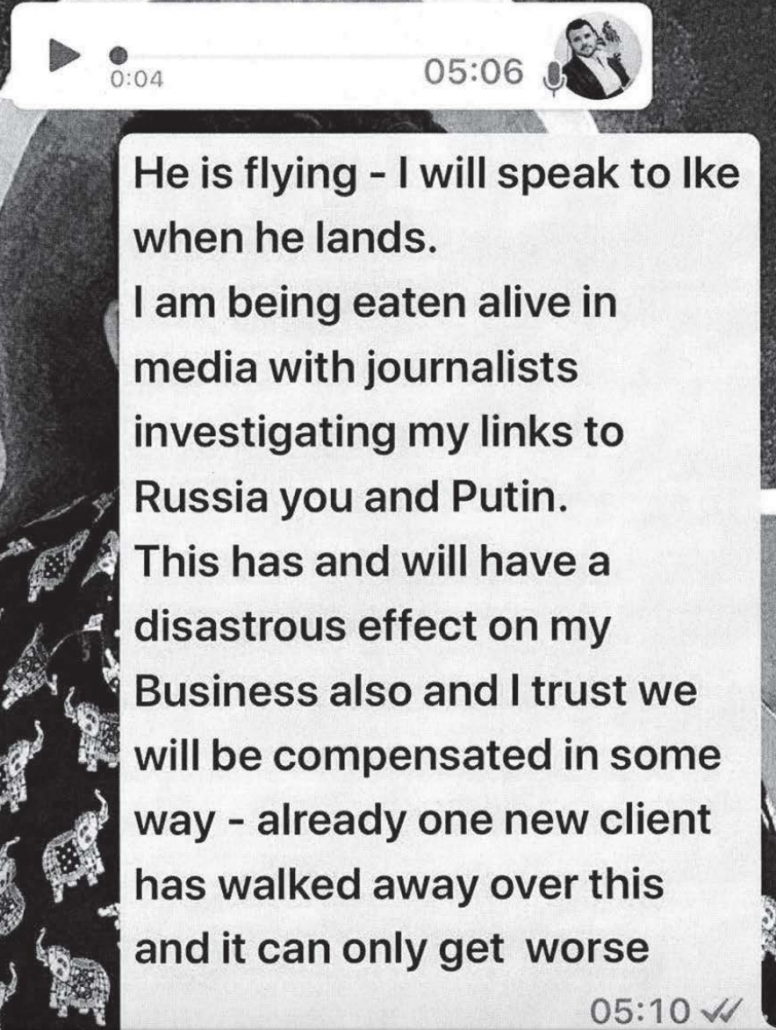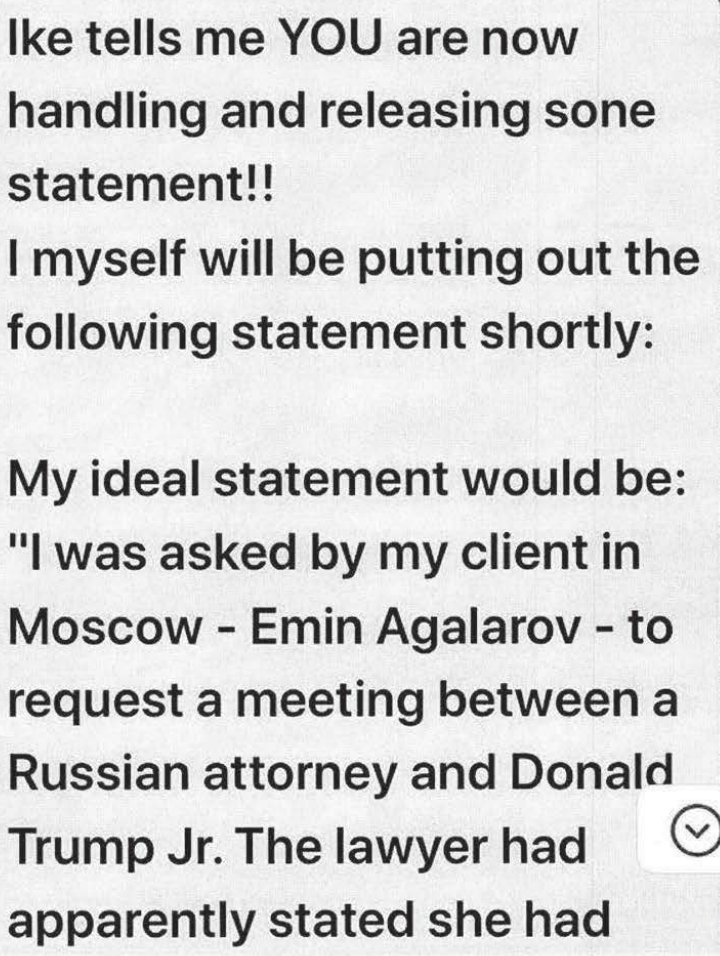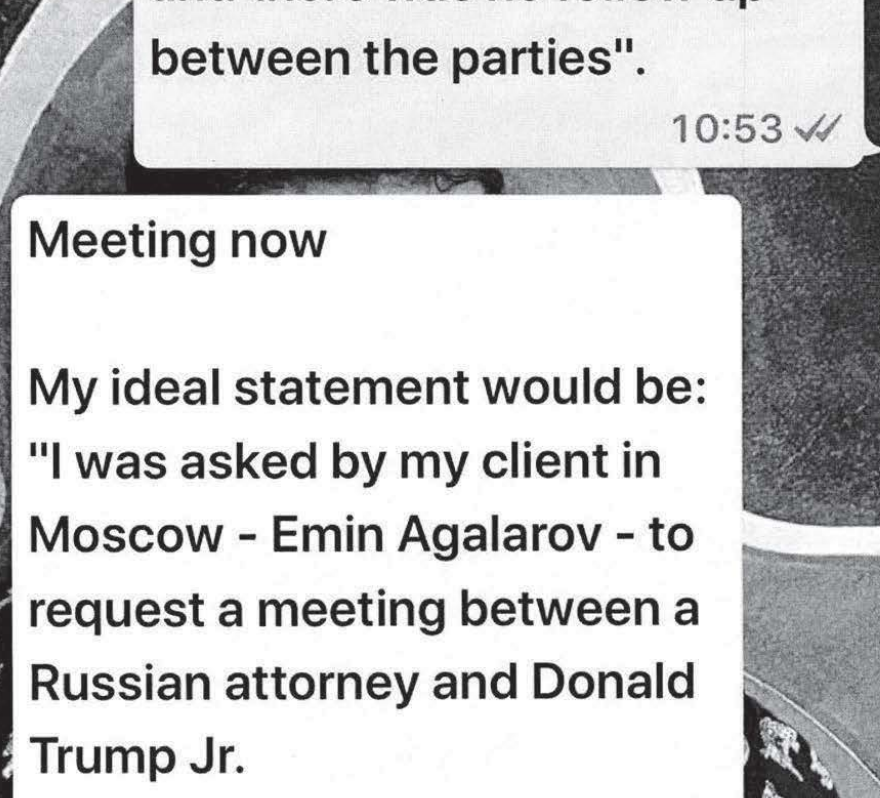When I went out to run errands yesterday, Paul Manafort was likely facing having his bail revoked next Friday and going to jail, from where he would fight charges that could put him in prison for the rest of his life. When I returned after an hour and a half, Paul Manafort — faced with a new superseding indictment — was probably facing having his bail revoked next Friday and going to jail, from where he will fight charges that could put him in prison for the rest of his life. That is, nothing much has changed, especially if you’ve been following along closely enough to know that Konstantin Kilimnik, who finally got added to Manafort’s indictments, has always been a key part of the election year conspiracy and the damage control since.
The key development, in my mind, is tactical. As Popehat explained in one of two great lawsplainers yesterday, the standard on revoking bail in any case is just probable cause that you’ve committed new crimes while being out on bail. By getting the grand jury to indict the underlying behavior behind the witness tampering claim, you’ve established probable cause.
And by the way, those accusations that Manafort committed a crime on bail? Mueller got a grand jury indictment, establishing probable cause. That may be all the judge requires. Manafort’s in trouble. I mean, even in the context of someone facing multiple indictments trouble.
This makes easier for Amy Berman Jackson to send Manafort to jail next Friday, effectively outsourcing the decision to a bunch of anonymous grand jurors. That is, it takes a likely action and makes it even more likely.
I’m interested in what it does to preserve evidence, though.
Manafort submitted his opposition to having his bail revoked last night, effectively claiming that Mueller has shown almost no evidence of witness tampering.
The Special Counsel creates an argument based on the thinnest of evidence; to wit, Mr. Manafort violated the Release Order’s standard admonition that a defendant not commit an offense while on release by allegedly attempting to tamper with trial witnesses. However, the scant proof of this claim is an 84-second telephone call and a few text messages between Mr. Manafort (or an associate referred to as “Person A”) and two former business associates(Doc. 315-2, Ex. N). These brief text messages followed the filing of the Superseding Indictment on February 23, which was the first time the Special Counsel raised any allegations about the mission and work of the Hapsburg Group. (Doc. 202, ¶¶30, 31.) Closer scrutiny of this “evidence” reveals that the Special Counsel’s allegations are without merit because Mr. Manafort’s limited communications cannot be fairly read, either factually or legally, to reflect an intent to corruptly influence a trial witness.
The merits aside (remember, Jeffrey Sterling spent years in prison based in significant part on metadata showing 4:11 in phone calls, without content, between him and James Risen), I find this footnote most interesting.
2 This is no small matter. It is clear from the Special Agent’s declaration that the agent spoke with the person on the other end of the call (i.e., D1). (See Doc. 315-2, ¶¶ 19, 20). Instead of identifying what was said exactly for purposes of this motion, however, the Special Counsel instead states what D1 “understood” from Mr. Manafort’s brief text messages—not the telephone call that occurred. Id. at ¶19. The Special Agent also states what D1 opines, i.e., what D1 believes Mr. Manafort knew. Id. Person D2, with whom Mr. Manafort had no telephone conversations or text messages, states that D1 told him (D2) that he “abruptly ended the call.” Id. at ¶ 20.
Manafort is complaining that Mueller didn’t reveal precisely what FBC Group’s Alan Friedman (see this post to explain who he is) told the government about the call. Had Mueller not indicted, then he would have had a real incentive to call Friedman as a witness next week to explain precisely why Manafort’s comments reeked of obstruction. Mueller has likely presented the substance of the call to the grand jury, however, and may now have less need to put Friedman on the stand next week.
But there is probably far more interesting evidence that Mueller presented to the grand jury to substantiate these two charges:
Obstruction of Justice
From in or about and between February 23, 2018, and April 2018, both dates being approximate and inclusive, within the District of Columbia and elsewhere, the defendants PAUL J. MANAFORT, JR., and KONSTANTIN KILIMNIK knowingly and intentionally attempted to corruptly persuade another person, to wit: Persons D1 and D2, with intent to influence, delay, and prevent the testimony of any person in an official proceeding
Conspiracy to Obstruct Justice
From in or about and between February 23, 2018, and April 2018, both dates being approximate and inclusive, within the District of Columbia and elsewhere, the defendants PAUL J. MANAFORT, JR., and KONSTANTIN KILIMNIK knowingly and intentionally conspired to corruptly persuade another person, to wit: Persons D1 and D2, with intent to influence, delay, and prevent the testimony of any person in an official proceeding, in violation of 18 U.S.C. § 1512(b)(1).
Charging both the obstruction charge and the conspiracy charge is, in some ways, insurance. It implicates Manafort in what are mostly Kilimnik’s efforts to get Friedman on the phone to coordinate stories.
But to charge conspiracy to obstruct, as opposed to just obstruction, Mueller also needs to show an agreement between Manafort and Kilimnik. Such an agreement would likely get to the core of Manafort’s intent more quickly than the calls as received by D1. That is, such an agreement would be the evidence that Manafort claims is lacking.
Which brings me to this exhibit, submitted Monday as part of the government’s motion to revoke bail, which is an XLS spreadsheet bearing the title “Open Source Timeline – March 2016 to March 2017 – Edited_lm.xlsx” uploaded to the docket.
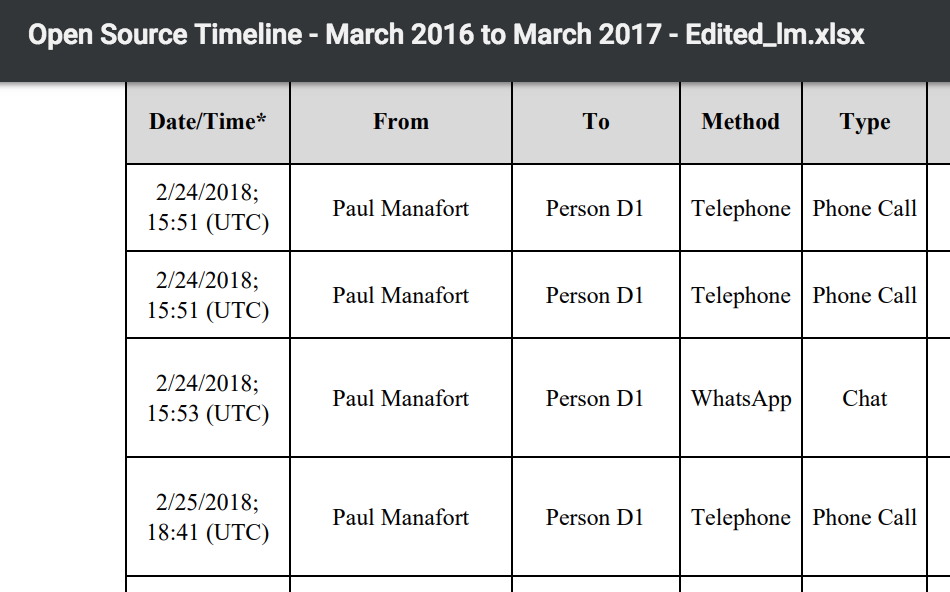
It tracks the phone, WhatsApp, and Telegram communications between Manafort and Person D1 and D2, and the WhatsApp and Telegram chats between Kilimnik and D1 and D2 (Manafort uses WhatsApp once to place a phone call, but otherwise the WhatsApp and Telegram communications are all chats). It shows that the government has third-party sources for all of this — either D1 and D2 turning things over on their own, Manafort’s phone company (he was using AT&T quite recently) turning over his toll records, or Apple turning over the contents of Manafort’s iCloud account.
The table also shows time tracked in two scales: All of Manafort’s communications and the single chat between Kilimnik and D1 are in Coordinated Universal Time, while all of Kilimnik’s chats with D2 are in Central European Summer Time. You might get the latter via screen shots from a phone taken while in Central Europe.
Note, even though Kilimnik tells D2 that he had tried D1 “on all numbers,” the log doesn’t show any calls between Kilimnik and D1, it shows only the one WhatsApp chat between Kilimnik and D1. So the log doesn’t even show all the communications to D1 that exist. Just those that the government can provide a source that it’s willing to share publicly. I assure you, however, that the government knows when those calls were placed.
The log, as presented, also doesn’t show any communications between Manafort and Kilimnik.
Now go back to the fact that, yesterday, the government showed the grand jury not just evidence that Manafort and Kilimnik individually tried to suborn perjury from D1 and D2, but that they agreed to do so. At the very least, that would involve communications between the two of them. They’re only going to have the substance of that communication in one of two ways, though: if they did this via WhatsApp chats, those chats would be available on Manafort’s iCloud account, because he’s got really bad OpSec.
But if those communications were via a phone or WhatsApp call, then the government would have gotten that communication via some other means, means it hasn’t shown in that contact log. Keep in mind: as a foreigner with key connections, Kilimnik is a legitimate spying target under any definition of the term, even aside from the allegation he’s got active ties to Russian intelligence. And since January 2017, the NSA has been able to share raw EO 12333 intelligence with intelligence agencies, including the FBI. If that sharing works the same way Section 702 sharing works (and Kilimnik’s WhatsApp activity may or may not be collectable under 702, even before you get to EO 12333 collection), then so long as the FBI has a full investigation, it can obtain raw feeds of the targets covered by that full investigation.
No FISA notice has been filed in this case; it’s not clear whether the government would give notice of EO 12333 data (they should but they likely don’t). In either case they’d only have to if they intended to use that information in trial. The rest, they’d parallel construct by obtaining from the other parties to a communication or Manafort’s iCloud account.
Now, I suspect Mueller did not intend to file a document indicating that this communication log was originally started with a March 2016 to March 2017 scope, making it clear they’ve got a collection of parallel constructed sources for Kilimnik and Manafort communications that go back that far, right back to when Manafort joined the Trump campaign (which is slightly different than saying they got all of Manafort’s communications during the campaign).
That they’re still using the log to track the duo’s really idiotic ongoing communications is testament to the fact that since Manafort was indicted in October, the government has just been sitting back, watching everything Manafort and Kilimnik do and say to each other while getting Rick Gates to flip, collecting more information, and forcing Manafort to pledge all remaining liquidity to get bail. They’ve been watching Manafort and Kilimnik continue their efforts to try to get out of the deep shit Manafort is in, biding their time.
At the very least, revealing the communication log on Monday would have led Manafort to finally change the privacy settings on his phone, though it may well have led to a noticeable security change from Kilimnik as well, perhaps even a new phone without an FBI or NSA sensor collecting everything.
In the interim, too, other corners of the government revealed, in fairly spectacular fashion, that they can and will obtain the Signal and WhatsApp chats involving journalists of even congressional staffers like James Wolfe, meaning not just that they would do the same for alleged criminals out on bail and their co-conspirators, but that the means to do so has become readily available to the FBI for national security investigations. In short, this week the government tipped their hand about a whole slew of communications involving Manafort and Kilimnik that haven’t been disclosed in discovery yet as well as a capability that even lots of national security journalists (present company excepted) didn’t know they had.
Thus the grand jury and the new charges. It strikes me that, after disclosing the additional collection the FBI has on these two (though both have been fairly stupid in response to such disclosures in the past), the government has less incentive to let Manafort remain out on bail, because it will have a diminishing yield of information about the conspiracy. But the government also has a need to move things along without presenting everything they’ve got (including what they’ve asked Friedman about the developments post April 2 that led Kilimnik to try reaching out a second time). The new indictment provides a way to get to probable case without showing everything they’ve got, which in turns makes the chances that Manafort will finally be going to jail that much higher.
Update: On June 12, the government elaborated on the evidence showing that Manafort intended to suborn perjury, noting that the indictment should be enough by itself to revoke bail.
On June 8, 2018, a grand jury sitting in the District of Columbia returned a Superseding Indictment charging Manafort and his longtime associate, Konstantin Kilimnik, with attempted witness tampering and conspiracy to commit witness tampering, in violation of 18 U.S.C. §§ 1512(b)(1) and (k). See Doc. 318 ¶¶ 48-51. Counts Six and Seven of that Superseding Indictment “‘conclusively determine[] the existence of probable cause’ to believe the defendant” committed a federal crime while on pretrial release. Kaley v. United States, 134 S. Ct. 1090, 1097 (2014) (quoting Gerstein v. Pugh, 420 U.S. 103, 117 n.19 (1975)); see also United States v. Smith, 79 F.3d 1208, 1210 (D.C. Cir. 1996) (“[T]he indictment alone would have been enough to raise the rebuttable presumption that no condition would reasonably assure the safety of the community.”). Probable cause to believe that Manafort committed a crime, in turn, triggers a rebuttable presumption “that no condition or combination of conditions will assure that [Manafort] will not pose a danger to the safety of any other person or the community.” 18 U.S.C. § 3148(b). Manafort’s challenge to the strength of the government’s evidence of witness tampering is thus both misplaced and unavailing. See Kaley, 134 S. Ct. at 1098 & n.6 (explaining that “[t]he grand jury gets to say—without any review, oversight, or second-guessing—whether probable cause exists to think that a person committed a crime,” and recognizing that this “unreviewed finding . . . may play a significant role in determining a defendant’s eligibility for release before trial under the Bail Reform Act”). 1
The go on to suggest that given the indictment, they don’t even need to bring the FBI agent to testify, but will.
Although the government submits that the grand jury’s probable-cause determination obviates the need for testimony by the agent who signed the declaration in support of the government’s motion to revoke or revise, the agent will be available to testify if needed per the Court’s Order. The government submits, however, that any remaining factual matters can be addressed by proffer, as is common practice at bail hearings. See Smith, 79 F.3d at 1210; see also United States v. LaFontaine, 210 F.3d 125, 131 (2d Cir. 2000) (calling it “well established . . . that proffers are permissible both in the bail determination and bail revocation contexts”).
Again, all this seems designed to make it easy for Amy Berman Jackson to revoke his bail.


